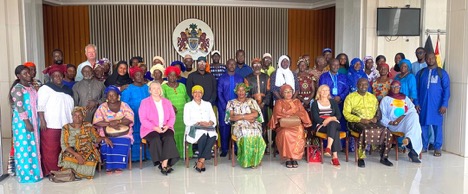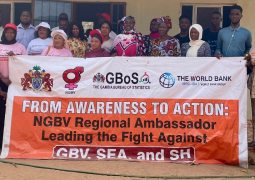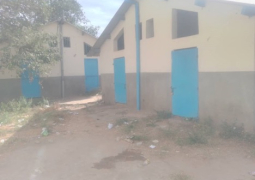
The Gambia Programme for the Sustainable Development of Fisheries and Aquaculture Value Chains (FISH4ACP) seeks to facilitate the development of an upgrading strategy for the Mangrove Oyster Value Chain in close collaboration with key value chain actors and stakeholders.
The partners include the Department of Fisheries of the Ministry of Fisheries, Water Resources and National Assembly Matters, TRY Oyster Women Association Harvesters, Civil Society Organisations and other government institutions.
At the review held at Sir Dawda Kairaba Jawara International Conference Centre, Anna Mbenga Cham, director of Fisheries, revealed that women oyster collectors played crucial roles in the fisheries sector and are the most successful in the aspect of Gambian fisherfolks.
“Supporting women and enhancing the development of women will support the development of this country.” she said.
Cham reminded that the agreed vision for upgrading the mangrove oyster value chain states that by 2032, there will be a vibrant and sustainable oyster sector in The Gambia, with oyster value chain actors being resilient to potential shocks and generating profits through an increase in production and enhanced value addition.
She revealed that the vision cannot be achieved without the implementation of the co-management plan.
Deputising for the permanent secretary of Ministry of Fisheries, Water Resources and NAMs, Malang Darboe, Deputy Permanent Secretary at the Ministry, said the initiative was the empowerment of women in the oyster harvesting sector, with special emphasis on the TRY Oyster Women's Association.
DPS Darboe noted that the fisheries sector plays a crucial role in the country’s economy, especially in reducing poverty, food insecurity and creating employment.
“As one of the largest food providers, it supplies a significant source of animal protein and generates vital foreign exchange and livelihoods for many Gambians, particularly in vulnerable communities,” Darboe pointed out.
Ms Moshibudi Rampedi, FAO country representative, said the updated FISH4ACP Tanbi co-management plan would incorporate new management measures and strengthened institutional framework. That, she said, would help in addressing the needs and the concerns of those that were directly involved in and affected by the management of the oyster value chain or oyster resources.
“The Sustainable Fisheries Management was not just a technical challenge. It was a shared responsibility that required collaboration, commitment, and a long-term vision.” Ms. Rampedi said.
According to the FAO, the European Union (EU), the German Federal Ministry for Economic Cooperation and Development (BMZ) and the FAO provided funding, technical and administrative support for the 4-year project (2022 to 2025), to the tune of 4 million Euros.
The Cockle and Oyster Fishery Co-Management Plan for the Tanbi Special Management Area was developed with the support of the USAID/Ba Nafa project, approved in 2012, and officially gazetted in 2013.



